Building a Career in Film Editing
- Career Advice from a Reddit Editor’s Thread
- Inside The Edit goes Outside The Edit
- Building a career as an Editor
Learning how to edit is one thing. Learning how to be an editor is another. Learning how to build a career in film editing, one that sees forward momentum and upward mobility is entirely another.
In this post I’ve drawn together some fantastic resources for editors, at all stages of their career, to help us all learn from one another about how to make and seize the opportunities we need.
If you’re after some ‘further reading’ on this topic, then I’d point you to a recent post in which I shared what I keep in my Freelance Editor’s Toolkit.
This includes four essential reads, that I would recommend to anyone working in creative industries, including a book on developing people skills, learning to negotiate and making your ideas happen. Check it out here.
 Useful Advice for Anyone Working in the Film Industry
Useful Advice for Anyone Working in the Film Industry
Start at the bottom. Learn protocols. Make connections. Become a PA, then an AE, THEN an editor. Trying to make the leap straight into editing from college won’t work out in most cases. You may have some short term success with smaller projects, but it won’t lead anywhere in the long run.
I was recently checking out the excellent Editors sub on Reddit when I came across this nearly 5000 word thread discussing the most common mistakes that people make when trying to break into working in the film industry, and how to avoid them.
All in all it contains some sage advice for anyone working in the industry, delivered by some professionals with decades of experience. You’d do well to read through the entire thread here.
The premise of the thread is established by CrewCutter15, who shares two common mistakes he sees recent college graduates and younger editors making when they’re trying to get into the business.
These are ‘not starting from the bottom’ and ‘pigeon holing’ themselves into only seeking to work in a specific niche, such as high-end feature films, when there are many other career options available to them.
Although there are always exceptions to any rule, I would agree that there is no shortcut to success. You simply have to do the miles in the chair to gain the experience you need to become a good editor.
I would agree with some other commentators in the thread that if you’re going to invest your time, energy and (a lack of) money in your career in the beginning, climbing the ladder one rung at a time, you at least want to try to pitch it against the wall you want to climb. (To strain an analogy).
By this I mean that if you’re going to start off as a runner in a post house and you plan to stick with that particular shop for some time, then you at least want to be interested in doing what they do. If you want to get into cutting commercials, then run at a commercial’s post house, not a reality TV place.
But at the beginning you often have to take what you can get!
A good editor is like a good barman, a good listener a good communicator and knows when to keep his mouth shut.
The top comment in response to the original post is from Mike3400 who has spent over 22 years working on all kinds of projects from feature films to documentaries to TV commercials and ‘about 1000 games shows’.
Mike shares some useful insights including simple ones like ‘keep your mouth shut’ – if you’ve signed an NDA (Non-Disclosure Agreement) then keep it, to more complex ones like ‘become a people person’.
Mike suggests that you:
[develop] a personality that can take badly handled criticism, a willingness to try things you know won’t work just to share the process of exploring the footage together, a willingness to listen and empathise – far too often I’ve had people crying in my suite as their partner has just left them as a result of their obsession with their film and lack of attention at home.A good editor is like a good barman, a good listener a good communicator and knows when to keep his mouth shut.
One of the most important and complex parts of being an editor, especially on a high-pressure project, is to be able to manage the overlapping and conflicting personalities and preferences from those involved. This is often called ‘managing the room’.
As an editor you first need to be loyal to the director and their creative intent, whilst also adhering to the client/producer/executives requirements. Balancing all of these dynamics can be tricky, but a ‘personable personality’ goes a long way.
Or more simply put ‘don’t have an ego’, as Mellena puts it.
TipsyStatistic also follows up on the importance of this for long term success with this comment:
Having assisted some of the best in the business (features and commercials). The most common trait across all of them is how genuinely nice, chill, personable, and ego-less they are.
A lot of rookie editors will try to argue and get defensive when clients/directors/producers ask for changes.They get attached to a cut feel that their way is the right way. They resist trying something new or different.
I think it’s natural, but I’ve spent a lot of time trying to be as nice and collaborative as possible because of the great ones I’ve seen in action.
Advice for Switching Industry Niche
Part of the thread also takes on the challenge of how to progress your career in the direction your really want it to go. What do you do once you’ve managed to build a life as an editor, but you’re not working on the kind of creative projects you’d like to be?
In one example Bored_Boring shares that after 6 years of working in LA they are struggling to create new connections to allow them to make the jump from one industry segment (e.g. reality to scripted) to another.
Former editor and current Show Runner Trinoculusfilms offers some practical wisdom on this topic, which if you read the full thread includes his own journey to making this leap:
Every good job you will ever get will be through knowing someone.
You are approaching a difficult step in freelancing, the point where you must turn down work that’s not in the direction you want to go in order to hold out for something that fits in with your long term plan.
This will probably make sustaining a high standard of living more difficult, especially as you return to lower-paying gigs and occasional freebies, but you have to know what your goals are, and make definitive steps to reach those goals.
Once you’ve reached the success of being a ‘working editor’ and managing to pay your way, an additional challenge to take on is building your career from that point forward.
Mission Impossible: Rogue Nation editor Eddie Hamilton used to edit at the Paramount Comedy Channel 2 days a week so that he could afford to cut his first few features films for free in the rest of the week. Yes, for free!
Getting respectable credits under your belt, whether you were paid for working on them or not, goes a long way to helping you land those preferred projects later on. Eddie shares a ton of other very practical advice on his personal website, here.
On my first ten features there was no budget for an assistant editor. I was my own assistant. Digitizing, synching rushes, logging paperwork, cutting the film, doing playouts, creating EDLs and generally overseeing the entire post on the movie. That is how I learnt my craft. – Eddie Hamilton
Another way to tackle this is to edit short films or smaller ‘freebie’ projects in your own time to build up your reel with examples of the kind of work you want to be known for. This also helps to build connections in the industry, some of whom you’ll hopefully work with again in the future.
Advancing your Editing Career From Corporate Video To Music Videos
There’s a great interview with editor Taylor Tracy on the Frame.io blog, in which she shares plenty of great advice for editors at any stage of their career.
She talks about breaking into the industry, taking risks to advance, moving up the ladder and ultimately making the leap to freelancing.
“When it comes down to it,” she says, “you need to be brave in situations where you may be hesitant or scared. That’s how you move forward.”
It’s a fantastic read, and whatever stage of your career you happen to be in right now, you’ll definitely walk away with some wisdom.
“I’ve worked a lot with freelance editors, colorists and FX people,” she says. “The ones we tend to go back to are the ones who are always responsive, and who want to bring their own spin to the project. Make it a little fingerprint of their own style, but also be very conscious of what the director wants, and being adaptable to any notes that come in.”
Inside the Edit Goes Outside The Edit
Inside the Edit is an insanely detailed course on the craft of film editing, created by award winning British editor Paddy Bird.
I’ve previously reviewed Inside The Edit, in the posts below, and I included it as a core part of my ‘Alternative Film School for Editors‘ – a post in which I built a curriculum and equipment list that could help you kick start a career in film editing for under $10,000.
Learning the Craft of Film Editing | Inside The Edit Review | Alternative Film School for Editors
One of the main (and many) reasons the course is worth the money is that it teaches the WHY of film editing. Teaching you to know why to cut when you cut and how to know if it’s working. Not how to use the trim tool.
Outside The Edit is a whole new course from the team at ITE, in which they discuss ‘professional editing psychology’.
Episode 1 is entitled ‘The Next Level‘ and in it, Paddy tackles the question of “What do I do, once I’ve already achieved some success, to get to the place where I get to do what I really want to do.”
It’s a similar question to the one posed above about changing industry niche.
Paddy’s answer involves a mindset in which you:
Work on your weaknesses. It’s a really interesting point and it’s so often ignored.
Paddy also throws out a warning to us all, as creatives people:
New cognitive studies show that when you learn something, but you stop at a point, but you don’t actually push yourself to get better… over time your abilities can start to fade away.
Outside The Edit is a ‘new content stream’ that is free to all existing subscribers of Inside The Edit.
In each episode, Paddy talks through the essential secondary skills that are needed to build and sustain a successful career in high-end editing. This is not craft, this is professional edit psychology.
Future episodes will cover topics like:
- Understanding the balance of power in an edit suite
- How to work with difficult directors
- How to achieve creative flow inside the cutting room
- How to be positive, diplomatic and nurturing with clients
If you think Inside The Edit can help you take your editing career to the next level then save yourself 25% off the price of the course with the promo code: JONNYELWYN
Five Things I Wish I’d Known When I Started
In the introduction to my ebook on How To Be a Freelance Creative, I also share five things I wish I’d known when I started. I thought I’d share them here too, in the hope that you also find them useful.
1. As a freelancer you are an entrepreneur.
As your own boss you shape your own business and make your own success. I used to think though, that as an editor, I was very much at the end of a long chain of events that had to happen before I could get any work; first of all the client had to decide to make a film, then they had to decide to use a producer/director I knew, then that producer/ director had to decide to use me, if I was even available and up to the job.
It was only much later that I discovered how easily I could kick start that chain by pitching to potential clients directly and then either sharing the work with other freelancers or taking on more creative roles for myself.
There is nothing to stop you doing anything.
2. Raise your rates and ask for more money with every new client.
This is one of the simplest ways to increase your income, but for a long time I was nervous to try it.
Also, expect to be asked to offer a better deal, so always ask for more than you’d really be happy with, so you appear to be compromising on the rate. However, at the very start of your freelance career, take whatever you can get just to keep yourself in the game.
3. Sell enthusiastically.
Whenever you sell yourself and your services to your clients, do so with a confident smile. Always be sure to create genuine value for your clients along with a friendly relationship, and they will appreciate what you do for them so much more.
4. The ‘competition’ are your best community.
The more people you know who do exactly what you do the better. You can help them find work and they will help you back. These reciprocal relationships are vital.
5. Being freelance is much more fun than having a ‘real job’, as long as you don’t worry about money.
Getting to a place of not worrying about money definitely takes a few freelance miles to achieve but it is entirely possible. Hopefully some of the practical tips in this book will help you get there too.

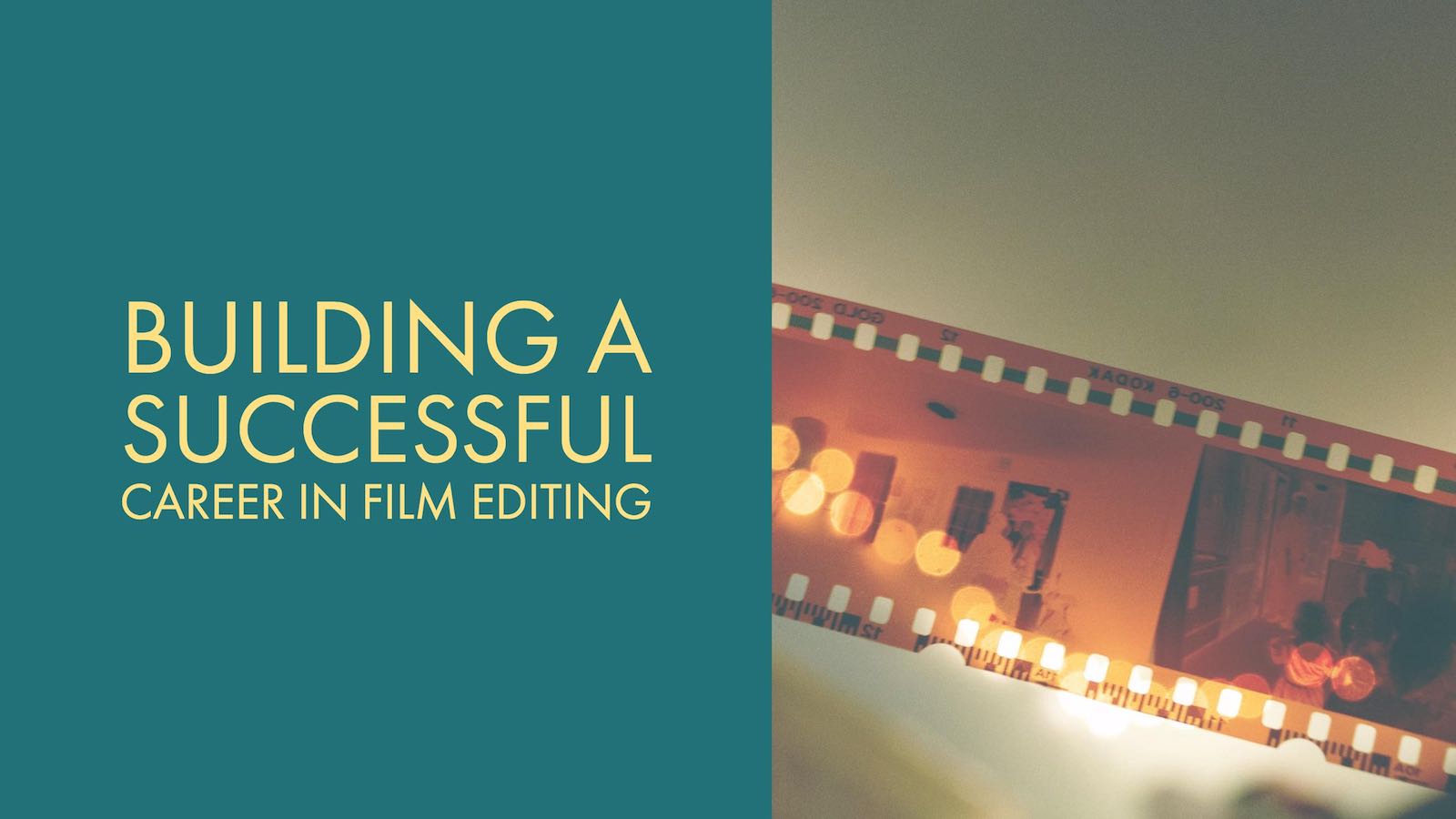

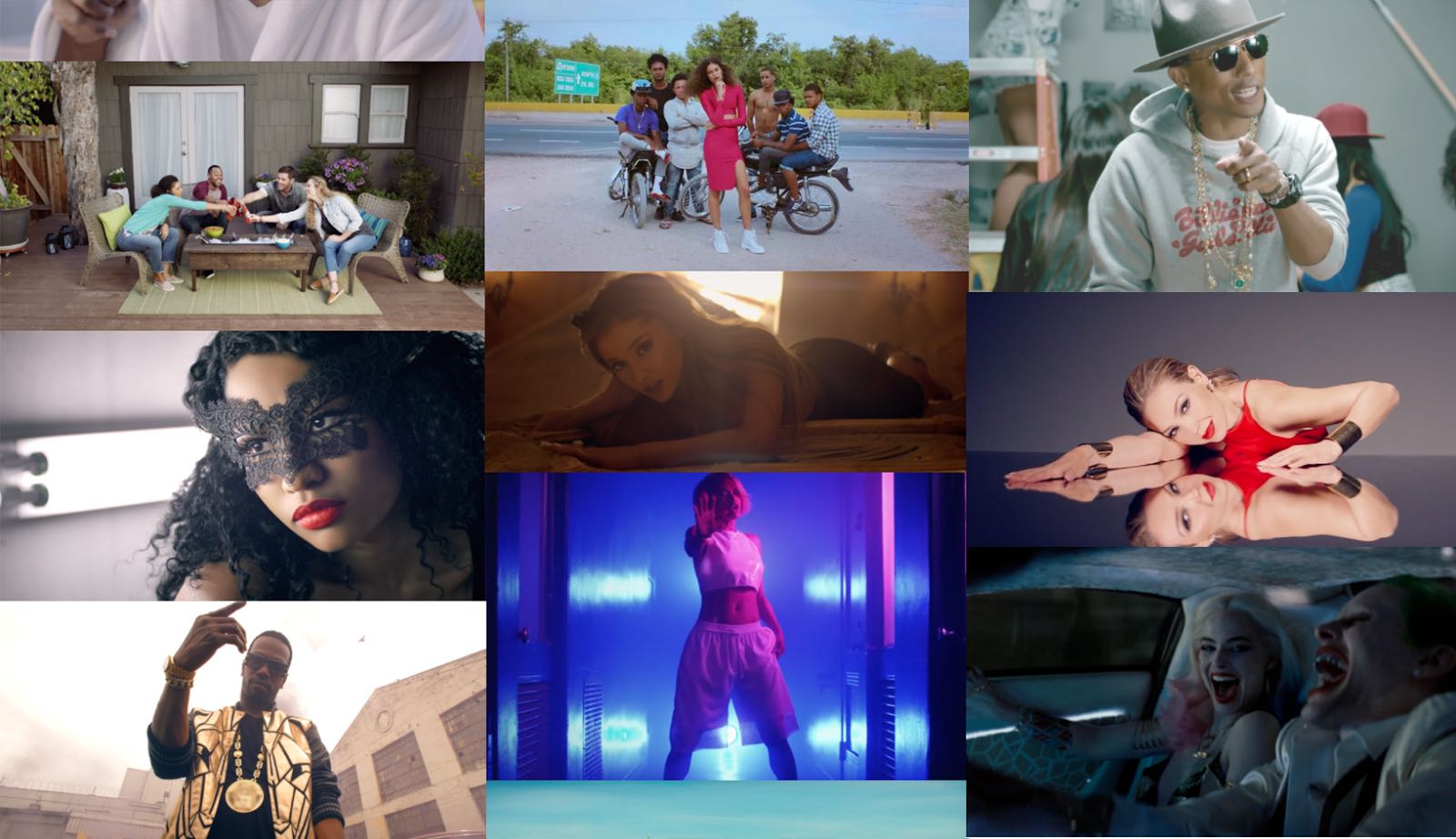

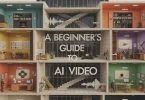
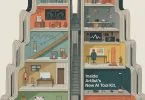

Nice article, thanks. What’s a “lm editor”?
just a typo! Fixed thanks.
Oh I see – there’s another typo in that same paragraph – “the client had to decide to make a lm” 🙂
Inside the Edit is an incredible course. Haven’t found anything that comes close online. I highly recommend it.
“Become a PA, then an AE, THEN an editor. Trying to make the leap straight into editing from college won’t work out in most cases”. This might be the best advice that I got form an old-school AD when I was trying to get ahead in the film industry.
– “Keeping your mouth shut” is also a very important advice. I can’t count how many times I heard the phrase “don’t hire that guy, he just talks too much”.
Amazing post and will definetly check out inside the edit, looks very interesting!
Excellent advice Hasan.
So many people are under the illusion that if you just “learn how to edit” you’ll be ready for your career as a film editor. As you point out, in the majority of instances it just doesn’t work that way. Particularly if you’re looking for a career working on studio features or network television. Quite honestly, the creative is the easy part. It’s learning the actual path, protocol and politics of working within the system, which you mentioned above, that only the most tenacious among us accomplish.